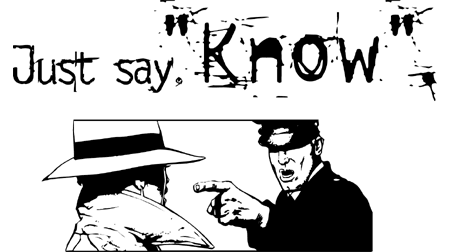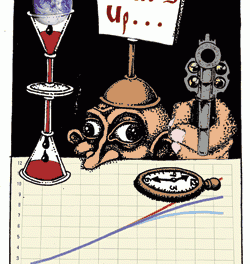This may happen namely for the Czech parliaments’ decision to pass an amendment to the penal code concerning its section related to drug enforcement, which makes possession of drugs, even for personal consumption, a criminal offense starting January 1st 1999.
A look at the different drug policies of a few European nations
Under the old penal code, it is only prohibited to ‘grow or manufacture’ narcotics, psychopharmaceuticals and toxic substances without a license, or to smuggle these substances in, out, or through the borders, or to carry them for another person, or lastly, to give them to another person unknowingly.
In addition to this, the proposed amendment introduces subsequent adjustments to the current law, henceforward prohibiting the possession of any drugs for ones own personal consumption “…in an amount that is not small”.
But even in the case that the amount found is smaller than this fuzzy ‘… small amount’, still it would be called in question as a transgression for which the perpetrator would be penalized up to 15,000 crowns. You can see the direction this could head as a source of profits for the government.
On the other hand, there are arguments “for” the new law, which are represented by the designers of the amendment. Their argument is supported by several different sides. Polls repeatedly show that 80-90 percent of Czech population consider punishability of drug users as necessary.
Some police authorities are embarrassed by the laws regarding narcotics, for it gives drug-dealers immunity, and focuses on obtaining the drugs themselves. Although the status quo enables prosecution of drug-dealers, some police bodies claim that in fact, it is unable to convict drug-dealers until it is illegal to possess any amount of drugs. Also some local experts, in treating drug addicts, and some psychiatrists, welcome the legislation.
The reasons why they are, is probably due to the fact that it is hard for them to give ears to progressive theories. For those having experienced a conservative medical attitude to drugs for many years and often decades, anything but intolerance is unthinkable.
Among the political parties KDU-ČSL (Christian Democrats Party) played the leading role in passing the legislation. This amendment, which was designed by Jaroslav Kopriva, Minister Of Interior Deputy and member of KDU-ČSL, was preceded by several trials to amend current legislation, represented by another KDU-ČSL members, Pavel Severa and Jiri Vacek.
In October 1997 the KSCM (Communists Party) also presented their own proposal for an amendment, which was not even accepted for passing procedures by the Parliament. Anyway, their proposal did not essentially differ from the present one. On the other side there are many opponents of restriction.
Among them the particular role is played by the experts on treatment of drug addicts, primarily those who represent NGO’s established during the 80’s and the 90’s. These NGO’s mostly concerned themselves with “harm reduction” and programs to help addicts, hence their consternation about the new laws reflects their close experience with the dangers of drug use. They particularly draw attention to what would follow if the proposed legislation comes into effect.
Amid a supposed increase in the rates of drug addiction, and increasing numbers of HIV positive persons, a climate of fear, much like the media has propagated in the US, is being cultivated. With the new law, non-profit clinics argue that they would not be able to maintain the confidence of the drug addicts, since they could not secure them from being prosecuted even for coming into the first-detection centre, and how important that trust is in helping addicts.
It would have a disastrous effect, they warn. The question, is; what amount will be considered as “not small”, and in respect to that, as “more than small”?
Designers of the legislation supposed that amounts for each kind of drug would be determined by the first profile judicial decisions. Such a method of determination met with obstacles in the current law, which doesn’t provide for case-law formation in the Czech constitution.
Each judicial decision would hence be legitimate in respect to the others, but would not necessarily be the “leading case”. The other legal obstacle is to legitimize the law, to determine the punishment appropriate to the criminal offense, prison sentences usually warrant proof that a behaviour is socially dangerous.
Opponents of the law say abusing drugs is a form of self-damage and causes no hazard for the society and should not be considered as a criminal offense. Finally, on the side "against”, we also hear some voices from the authorities (cops), who claim that this amendment doesn’t help the police anyhow.
One of these voices, is that of police drug expert Jiri Komorous, chairman of NPC (National Office for Drug Enforcement), who says that current laws are fully sufficient to combat drug-dealers and other drugs-concomitant crime.
The biggest threat says Think, is that this is usually the method that the authorities use to begin unwarranted search and seizures, and finally clamp down on individual rights completely. The time is now, the choice is ours, progress, regress, or apathy. How important are your rights?
Think about it.





